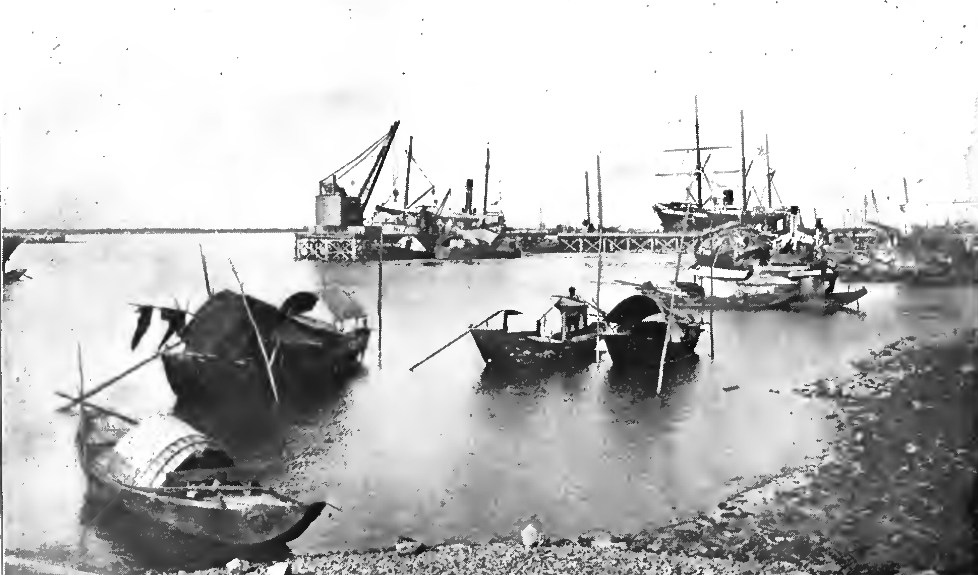<![CDATA[Fifty years ago the United States found itself becoming increasingly embroiled in the affairs of nations on distant continents. The Gulf of Tonkin incident had seen the country becoming increasingly embroiled in the Vietnam War, the consequences of which have been well documented. However on August 14th, 1964, Mississippi Senator John Stennis questioned whether the country was following a similar path in the Congo, heading into ‘another undeclared war’. A former Belgian colony, the Congo found itself increasingly at the centre of international politics. The nation was rich in mineral deposits, the extraction of which was largely controlled by foreign companies. At a time of tense Cold War relations, the country’s unstable political climate also drew attention from both the USSR and China, as it became another potential battleground for the conflicting ideologies. On August 4th 1964 the US president announced that the US would be sending B-26 bombers to aid the regime of Moise Tshombe, the country’s Prime Minister. Officially the planes would be there to augment the Congo National Army’s struggle against a rebel insurgency, and would not be involved in any combat missions. The United States had also agreed to fund the recruitment of mercenary states, such as Liberia, Ethiopia and Nigeria. Stennis’ assertion that the US had become embroiled in another overseas civil war in everything but the actual fighting seems accurate. The rebel insurgency the US had decided to support the Congolese government against was the Popular Army of Liberation, who had seized the country’s third largest city, Stanleyville, and about a fifth of the Sub-Saharan nation’s territory. Whereas as the nations government was nominally ‘pro-West’, the Popular Army of Liberation had received material support from the Soviet Union and some neighbouring African nations. The dynamic of the conflict, and the involvement of the Cold War protagonists, therefore bears remarkable similarities with the Vietnam War. Congo’s history is one that has been excessively influenced by other countries. It had been a Belgian colony until June 30th 1960. However the pain of decolonisation continued well beyond this date. It was hoped that the new administration would continue a pro-western outlook, allowing the business interests of the US and Europe to continue to prosper, however by July 5th it became clear things would not be so simple. Congolese soldiers mutinied against their White Belgian commanders at the Thysville military base, demanding greater authority and pay. The revolts spread and violence broke out across the country. The white population began to flee the country, as newspapers started carrying stories of attacks on them. This crisis was eventually resolved, albeit in controversial circumstances. The Belgian government sent in troops to restore order in the Congo, without the permission of the country’s elected government, President Joseph Kasavubu and Prime Minister Patrice Lumumba. In response to the Congolese government’s protests, the United Nations ordered the withdrawal of Belgian troops, and sent in its own intervention force. The intervention calmed the situation somewhat, but two of the nation’s richest provinces had declared independence, something which may have been supported by Belgian forces. Lumumba, the man who had led the country to independence, was a staunch believer in his country’s right to control its own oil wealth, something that put him a odds with both the US and European countries with interests in the Congo. Lumumba was eventually removed from power in a coup, and executed a few weeks later. It has been suggested that Belgian and US forces were involved in his downfall. Whether this is true or not, it shows the cynicism that exists about the level of independence post colonial nations have. Stennis speech fifty years ago is a reminder of the increasingly complex role the US and European powers had, and still have, in the affairs of other nations. Unlike Vietnam, the US did not put troops on the ground in the Congo, but their influence was still keenly felt. The experience of the Congo highlights the complicated route that former colonies had to take to achieve independence, and the lingering influence outside powers maintain. ]]>
Looking Back on International Intervention in the Congo
